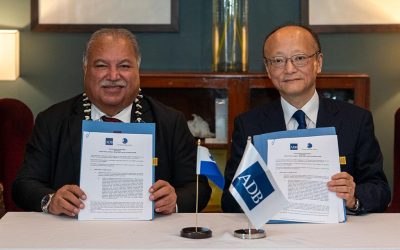The 2025 National Budget of Papua New Guinea has introduced one of the most SME-friendly fiscal frameworks in the country’s recent history. Delivered by Treasurer Ian Ling-Stuckey, the budget includes simplified tax requirements, targeted incentives, and continued financial backing for small and medium enterprises (SMEs), which make up more than 80 per cent of Papua New Guinea’s private sector.
A key highlight of the budget is the removal of the 22 per cent salary and wage tax bracket, aimed at increasing disposable incomes and lowering compliance burdens on employers. SMEs will also benefit from reduced red tape and a revised tax code tailored to micro and small enterprises.
To complement these tax reforms, the government has maintained its annual K200 million SME support funding. This money is channelled through financial institutions such as the Bank of South Pacific and National Development Bank, providing loans and grants to start-ups and growing businesses.
Treasurer Ling-Stuckey stated that the budget is aligned with the Marape government’s “Take Back PNG” economic agenda, which places SMEs at the centre of inclusive growth. “SMEs are our best hope for job creation, especially in the informal sector and rural areas,” he said.
The budget also includes zero-rated GST for 13 essential items, including rice, tinned fish, cooking oil, flour, soap, and baby formula—measures intended to reduce cost of living pressures and indirectly support consumer demand for local goods and services.
The reforms come amid rising youth unemployment and inflationary pressures that have affected household purchasing power. With limited formal employment opportunities, SMEs have increasingly become the economic backbone for many Papua New Guineans.
The private sector has welcomed the budget’s direction. Business Council of Papua New Guinea President Ian Tarutia said the reforms will encourage more people to formalise their businesses and participate in the broader economy. However, he also cautioned that access to affordable finance and effective delivery mechanisms remain crucial for these reforms to succeed.
If successfully implemented, the 2025 budget could mark a turning point in Papua New Guinea’s efforts to create a dynamic and resilient domestic economy.



